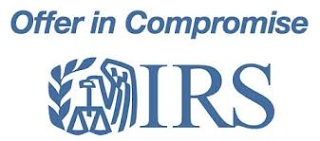During the start of COVID-19, the IRS was impacted in many ways. IRS sites closed for months, thus postponing everyday operations such as mailing notices and receiving and processing correspondence from taxpayers. During this time, the IRS had to act and make decisions as to how to proceed,and some of the decisionspotentially caused confusion and undue burden to numerous taxpayers who received erroneous Collection notices.
During The Shutdown, Many With Erroneous
Notice Dates And Payment Due Dates.
TIGTA’s review of these noticesidentified that the IRS issued 89,338 premature Notices and Demand for tax that were generated for 87,542 individual taxpayers who filed Tax Year 2019 tax returns before the COVID-19 filing date extension of July 15, 2020.
The notices showed that balances were owed even though the taxes were not actually due because of the filing extension. Although the majority of these Notices and Demand includedstuffers to explainthe correct noticeand payment due dates, taxpayers could be confused as to how to proceed, whether they receiveda stuffer of explanation with their notice or not, simply due to the original notices including incorrect information. The IRS had the opportunity to prevent undue burden to taxpayers by purging the outdated and incorrect noticesand sending them at a later date.
However, the IRS was effective in providing relief to taxpayers as outlined in its People First Initiative, including properly suspending defaults on Installment Agreements, passport certifications to the State Department, new account transfers to private collection agencies, systemic filings of Notices of Federal Tax Lien, systemic and automated levies, and seizures. TIGTA did identify that, for 23 levies (14 taxpayers) issued by revenue officers, there was no indication of the required levy approvals during the People First Initiative time frame.
The IRS took corrective action by contacting these taxpayers and issuing refunds or credit transfers on the levied funds. Additionally, TIGTA identified that 40 of 49 Noticeof Federal Tax Lien filingsby revenue officerswere made in error, but the IRS took corrective action to withdraw them.
TIGTA recommended that the IRS implement changesto its processes to avoid sending erroneous notices causing taxpayer burden. IRS management partially agreed with the recommendation. While they acknowledge that this is not an action management would take under ideal conditions, they believe their solution (to send the incorrect notices) was appropriate given the extraordinary situation. However, management further stated that, should future circumstances cause the IRS to be faced with a similar decision, they will take this report’s recommendation into consideration.
Have IRS Tax Problems?
Contact the Tax Lawyers at
www.TaxAid.com or www.OVDPLaw.com
or Toll Free at 888 8TAXAID (888-882-92
Read more at: Tax Times blog









